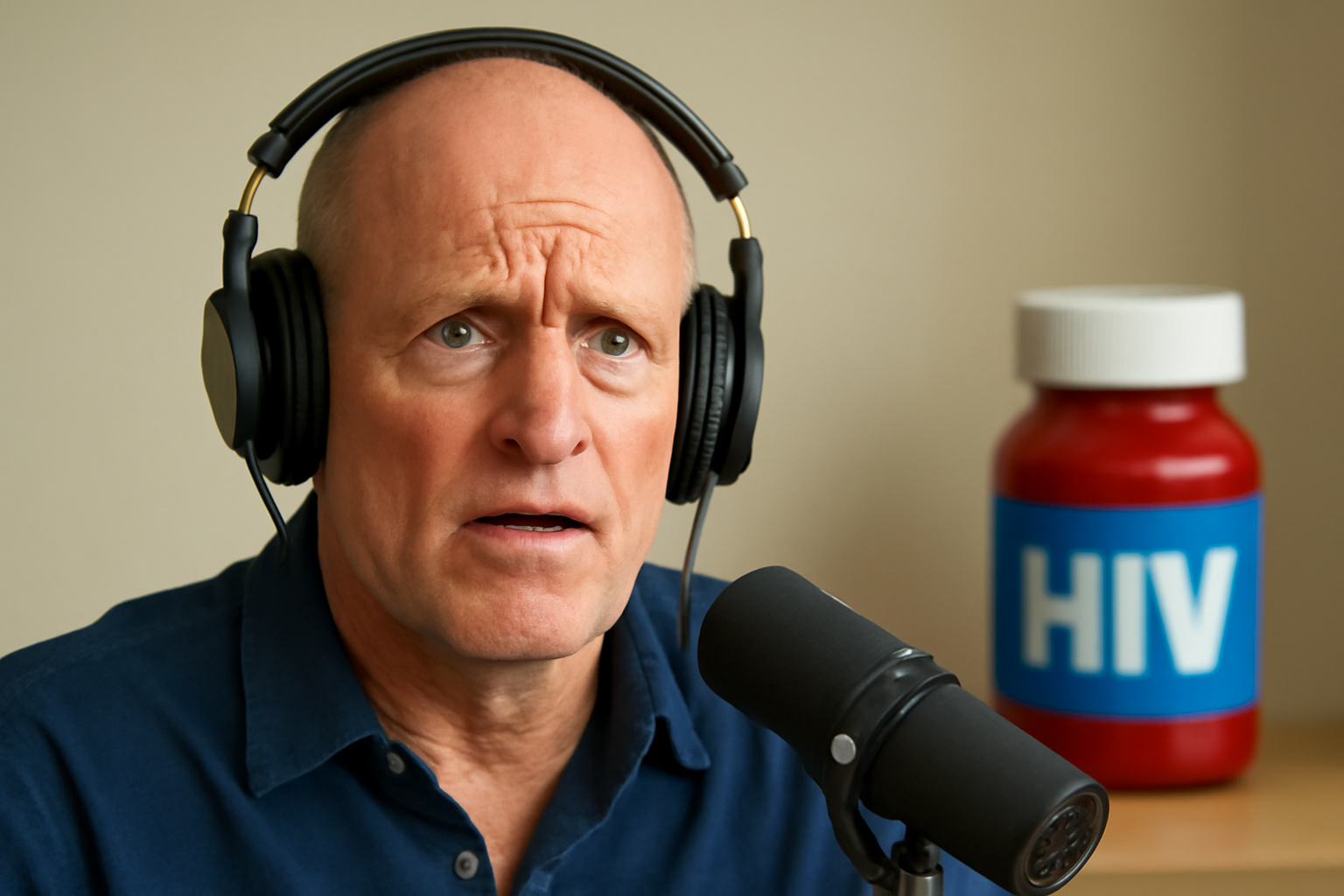
Actor Woody Harrelson has recently sparked controversy with his remarks on the use of HIV medication during a podcast appearance. His statements have drawn criticism from various quarters, especially from those who lived through the early years of the AIDS epidemic.
During an episode of The Joe Rogan Experience podcast, Harrelson made several comments about azidothymidine (AZT), the first antiretroviral drug used to combat HIV/AIDS. He described AZT as a "highly toxic" and "ineffective" medication, criticizing Dr. Anthony Fauci for its distribution.
Harrelson's Controversial Claims
Harrelson, known for his roles in films like Venom and the sitcom Cheers, did not hold back his criticism. He labeled Fauci, the former chief medical advisor to the U.S. President and a key figure during the AIDS crisis, as "extraordinarily evil" for approving AZT in the 1980s. AZT was introduced in 1987 as the first available treatment for HIV patients.
"AZT was known to be a highly toxic, really ineffective drug," Harrelson claimed. "And of course, that was the one they picked. They started using that again, and I don’t know how many people got killed. That killed friends of mine. AZT was very toxic and they finally had to yank it. Now they use different chemical cocktails but Fauci did some extraordinarily evil s**t."
Harrelson also praised Robert F. Kennedy Jr., a prominent anti-vaccine advocate, during the podcast episode. Kennedy has been widely criticized for spreading misinformation about vaccines and public health.
Community and Expert Reactions
The reaction to Harrelson's comments was swift and critical. Many in the LGBTQ+ community, particularly those who experienced the height of the AIDS crisis, were quick to push back against his statements.
One commentator noted, "AZT was all we had at the time, and it kept a lot of people alive for a lot longer than they would otherwise have had. Joe Rogan and Woody Harrelson exhibit a willful, belligerent ignorance I find hard to comprehend. It's like they love being stupid – and wrong."
Medical experts have reiterated that while AZT had side effects, it was a significant step forward in HIV treatment. The drug marked the beginning of antiretroviral therapy, which has since evolved into highly effective treatment regimens that manage HIV as a chronic condition.
A Look at AZT's Legacy
AZT, approved in 1987, was the first drug that showed promise against HIV. Despite its side effects, it was a crucial component of early treatments that extended the lives of many individuals living with HIV/AIDS. Over the years, as more drugs were developed, combination therapies or "cocktails" became the standard of care, significantly improving patient outcomes.
Dr. Anthony Fauci, who was involved in HIV research during the epidemic's early years, has been a figure of controversy among various groups due to his role in approving treatments and his involvement in the COVID-19 response.
Harrelson's History with Controversial Comments
This isn't the first time Harrelson has faced backlash for his remarks. In 2023, he was criticized during a Saturday Night Live monologue where he made conspiratorial claims about COVID-19 restrictions.
Despite the criticism, Harrelson has remained vocal about his opinions on public health and medical treatments, often aligning with controversial figures who challenge the mainstream scientific consensus.
The discussions around Harrelson's comments highlight the ongoing debates about the history of HIV treatment and the broader discussions about medical misinformation.
Engage with us and share your views in the comments below. Remember to keep the discussion respectful and considerate.
Related Posts
Finding a Community in Unexpected Places: A Personal Journey Through Texas
On my latest business trip down in Texas, it felt like everything that could go wrong did. It all started with my flight from Los Angeles, which got hit with major delays. I ended up missing my connecting flight in Dallas, and it took a full day before I finally made it all weary and worn out in McAllen. I tried chalking it up as one those typical travel mishaps, but I couldn't help but wonder if [...]
Jonathan Bailey's 'Chic Glasses' Steal the Spotlight in Jurassic World Rebirth
Jonathan Bailey's fashion choice dazzles in Jurassic World Rebirth Fans can't wait any longer—the latest installment in our beloved Jurassic franchise, *Jurassic World Rebirth*, hits theaters soon. And guess what? It's not just about dinosaurs this time. Jonathan Bailey, whom we adore from *Bridgerton*, steps up as Dr. Henry Loomis, a charismatic paleontologist. But what's stealing his thunder? [...]
Martha Graham Cracker: A Night of Electrifying Drag Performance in Atlantic City
Experience a night like no other: Martha Graham Cracker's rock n' roll drag cabaret Get ready, because Martha Graham Cracker's about set Atlantic City's Anchor Rock Club on fire with her electrifying drag cabaret. With a voice that commands attention and a stage presence that's both vibrant and mesmerizing, she blends rock and roll with drag like nobody else. If you're itching a night jam-packed [...]